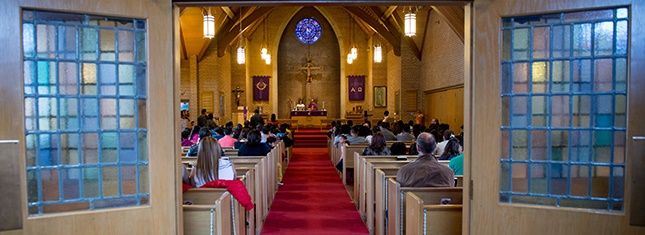I noticed an interesting pattern throughout December: I was much more likely to invite people to church and various church activities. I invited people to Christmas Eve services, as I usually do. I invited people to go caroling. I even invited a woman I barely know to come to church. I said, “You should come to church tomorrow. We’re decorating gingerbread people!”
I just blurted it out and later I thought, how interesting. I don’t usually go around inviting people I’ve just met to come to church.
But I do love the joy of gingerbread Sunday, and I want to share a Sunday that shows our congregation at its best.
It’s easy to invite people to church when we’re doing fun activities like decorating cookies or singing to people who are homebound. And I can rest assured that the Christmas Eve services won’t have music and Bible verses that will offend the non-churched or the seldom-churched.
But here we are at the end of December, which celebrates the slaughter of the innocents by Herod and the martyrdom of Stephen. I suspect that many congregations ignore these holidays to stay in the sweetness of Christmas a little longer.
But the larger issue remains: Why is it hard for me to invite people to church when we’re not doing fun activities? When we’re mired in the long season after Pentecost, for example, I often don’t feel enthusiastic about church myself, so it’s hard to invite people along.
For me, the hardest part of issuing invitations is worrying about the way the unchurched may respond to my invitations. I don’t want to seem coercive. I don’t want to be that woman who incessantly invites people so that they start to avoid me.
But I do realize that I risk going too far in the other direction. There are people who would be open to the invitation, if I would issue it. I know there are some people who would chastise me for my discomfort. They would tell me to invite people regardless of how I feel and what we’re doing in church. They would remind me that souls are on the line.
This may sound heretical, but I’m not looking to save souls – at least not in that traditional way.
It’s the Christmas yearnings that have given me insight into the invitation process, as I’ve had the staunchest of atheist friends tell me that December makes her ache for midnight Mass. I would name that ache the stirring of the Holy Spirit – but of course, I wouldn’t use that language when talking to my atheist friends. It would be a complete turn-off, and thus, useless.
Instead I say, “You could come to church with me. The Mass would be slightly different, but still familiar. We’d have candles. We’d sing the songs you miss so much.”
My atheist best friend never comes to Christmas Eve at my church, but she continues to talk about her longing, and I’ll continue to issue the invitation.
The world has a variety of yearnings, and our churches can answer some of them. Shaping our invitations to be an answer to a heart’s desire is a much more effective form of inviting than the blanket invitations that evangelical groups of my youth used to offer.
My New Year’s resolution and goal: Be more alert to people’s yearnings and the way my church is already working to fill them, and issue more invitations to give the Holy Spirit room to work.




